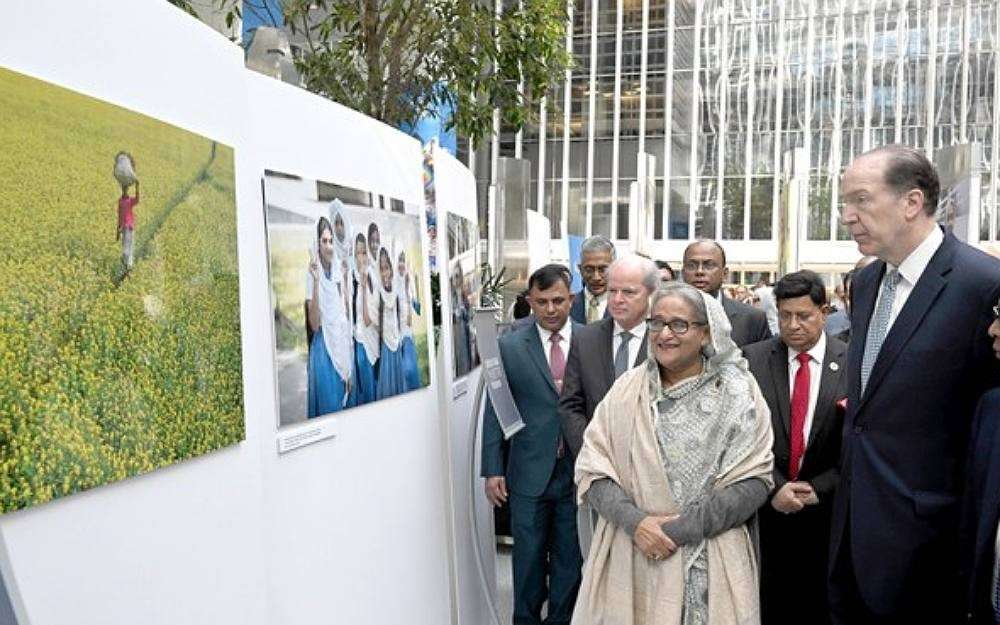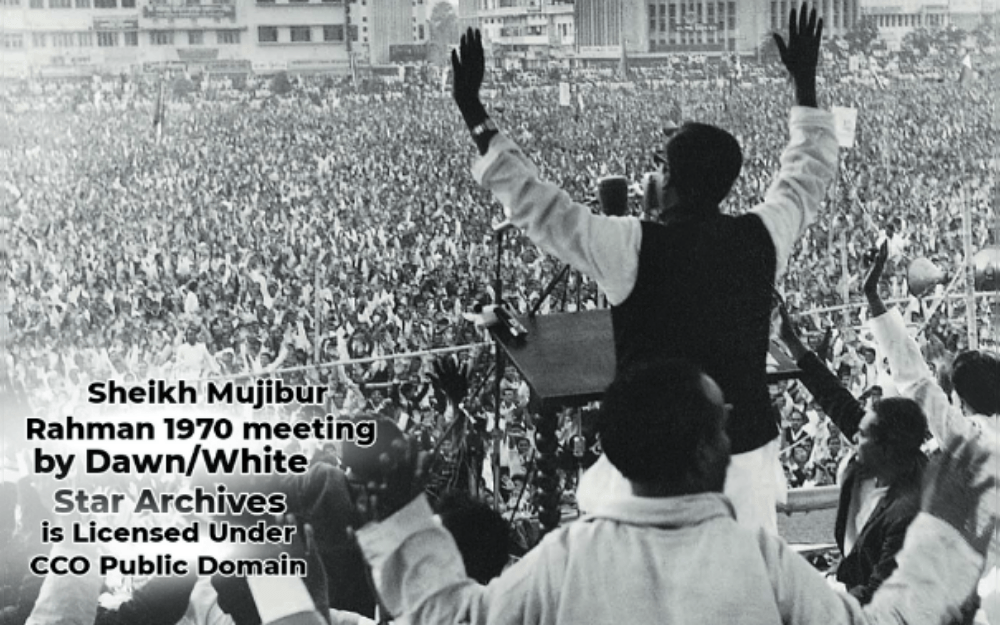BenarNews staff/Dhaka,Washington and Bangkok

When protesters ransacked Sheikh Hasina’s official residence and set fire to a museum honoring her assassinated father – Bangladesh’s founding leader – they symbolically bid good riddance to the rule of its longest-serving prime minister, whose rise to power was inextricably tied to him.
Hasina, 76, one of two women to have served as Bangladesh’s prime minister, resigned and fled the country on Monday. In a stunning turn of events, the army chief announced that she had stepped down, as student-led protesters converged on the capital Dhaka again to demand her government’s ouster after 15 years of consecutive rule, which saw it drift toward authoritarianism.
Hasina, whose supporters had dubbed her “the mother of humanity,” quit office amid a shaky economy and only seven months after her government was elected to a fourth consecutive term in power and fifth overall.
However, there were widespread allegations that the polls were skewed in favor of her ruling Awami League party. The main opposition Bangladesh Nationalist Party (BNP), led by her bitter enemy Khaleda Zia, had boycotted the Jan. 7 general election after Hasina refused to make way for a caretaker government to oversee the electoral process.
Since taking office in 2009, Hasina had led the South Asian nation of 170 million people on a track of mostly robust economic growth. But in recent years, she drew international scrutiny for an increasingly iron-fisted style and a record overshadowed by allegations of enforced disappearances and arrests of journalists and critics.
“If I’ve made any mistakes along the way, my request to you will be to look at the matter with the eyes of forgiveness,” Hasina told the nation in a televised address back in January as she sought re-election. “If I can form the government again, I will get a chance to correct the mistakes.”

Hasina’s life as a politician was born in the wake of bullets fired by assassins.
She formally took over the Awami League six years after her father, Sheikh Mujibur Rahman, her mother and other family members were gunned down during a coup in 1975.
By a stroke of luck, she escaped being killed alongside them. She and her sister were traveling abroad during the assassination of Rahman, who had led the Bangladeshi independence movement in the 1971 war against Pakistan.
“I stepped into politics to fulfill my father’s dream,” Hasina told the nation during her electoral speech in January.
Hasina saw it as her mission to carry on with the legacy of her late father, who was widely revered as a national hero in Bangladesh’s struggle for independence. In 2021-22, her government spent many millions of U.S. dollars to commemorate his memory and mark the 50th year of nationhood.
As the milestone anniversary approached, it became increasingly dangerous to speak freely about Bangladesh’s founding father, because his daughter’s government had instituted strict laws against defaming him in an effort to control the historical narrative, analysts said.
But Rahman, who was also known as Sheikh Mujib, slid into his own brand of autocratic rule after becoming the leader of the young nation. A year before he was assassinated, Rahman banned all political parties and the majority of the press, and formed a Chinese Communist Party-style one-party system called Bakshal.
The widespread anti-Hasina protests that began last month and culminated in her ouster on Aug. 5 stemmed from anger vented by students over quotas for government jobs that heavily favored children and grandchildren of veterans who had fought on Mujibur’s side in the 1971 war against Pakistan.
The deadly protests persisted although the nation’s supreme court moved to slash the quotas and make applications for most government jobs merit-based in the country where there is a high jobless rate among young people.
Start of political career
In 1981, Hasina returned to Bangladesh from exile in India shortly after being elected president of the Awami League. At the time, the country was ruled by President Ziaur Rahman, a military general who a few years earlier had founded the BNP.
Ziaur Rahman was killed in a coup days after Hasina returned, allowing another army general, Hussain Muhammad Ershad, to grab power.
Hasina collaborated with the BNP’s Khaleda Zia – Ziaur Rahman’s widow – to oust Ershad in a civilian mass movement.
In 1996, when the BNP held an election defying Hasina’s demand that a neutral caretaker government oversee the polls, she led opposition parties to boycott the election.
The BNP returned to power virtually unopposed – similar to her latest victory on Jan. 7 – but the Awami League’s constant street agitations forced Zia’s government to resign and call for fresh elections under a newly constituted caretaker system.
In that election, Hasina became prime minister for the first time.
Her party became known for aggressive and relentless political tactics, even when it was relegated to the opposition again in 2001. Frequent nationwide strikes and road blockades called by the Awami League kept the BNP government on the back foot.
Hasina’s political life was also marked by direct threats of violence against her.
According to the Awami League’s tally, she survived as many as 19 assassination attempts, the most recent of which occurred in 2004. In that incident, she narrowly escaped a grenade attack that killed more than a dozen people.
When elections approached in 2006, Hasina’s party again boycotted the polls, claiming that the BNP manipulated the caretaker system. Bloody street battles that ensued enabled the military to intervene in 2007, and she took a victory parade. But the new military-backed government placed both Hasina and Zia in jail on corruption charges.
Both were released a year later to contest the election in 2008, which Hasina won in a landslide.
In more recent years, Hasina was widely credited for tackling the problem of Muslim extremism in Bangladesh, especially after groups such as the Islamic State and al-Qaeda carried out killings of secular writers and bloggers in the country. However, the country’s deadliest-ever terrorist attack, an overnight siege of a café by pro-IS militants that left at least 20 dead, occurred under her watch.
Meanwhile, allegations about security forces carrying out extrajudicial killings kept surfacing. An ostensive anti-drug drive in 2018, an election year, left more than 400 people dead, according to local and international human rights groups.
It was in 2018 that the government relaunched an internet law and made it harsher. The Digital Security Act would go on to target journalists and social media speech disproportionately, stifle a climate for unfettered expression and lead to arrests of critics of her government.
Copyright ©2015-2024, BenarNews. Used with the permission of BenarNews.














